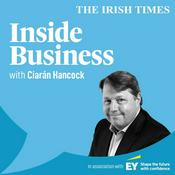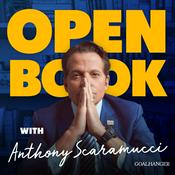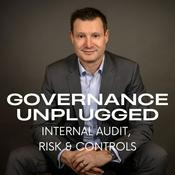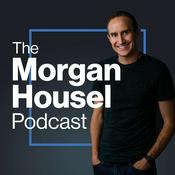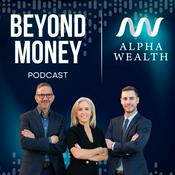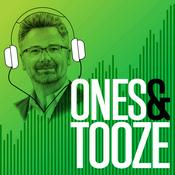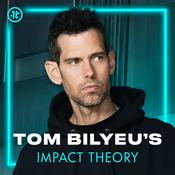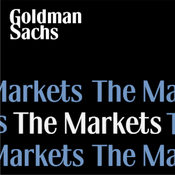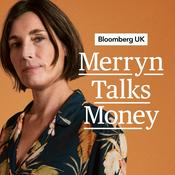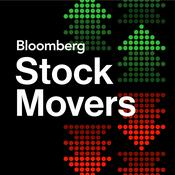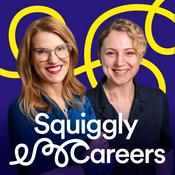153 episodes
The Spirit of the Code: Making Comply or Explain Work in Practice | Kelvin Ernest, Senior Policy Associate, Financial Reporting Council
19/2/2026 | 15 mins.Send a text
Comply or Explain is sometimes treated as a procedural exercise. However, the true purpose is to encourage thoughtful decisions, support accountability, and promote open communication with stakeholders.
In this podcast, Dr Sabine Dembkowski, Founder and Managing Partner, is joined by Kelvin Ernest, a governance professional with extensive experience navigating evolving regulatory expectations and corporate reporting practice. As a Senior Policy Associate in the Financial Reporting Council’s Corporate Governance and Stewardship team, Kelvin contributes to stakeholder engagement, policy development, reporting analysis, research, and the development of the updated UK Corporate Governance Code.
“The biggest takeaway for boards is that it encourages them to think carefully about how each provision fits into their own individual contexts.“
In practice, the UK Corporate Governance Code operates at two levels. Companies apply and explain against high-level principles and then address the more detailed comply or explain provisions. Companies can choose to follow the recommended approach or take a different route that better fits their circumstances. For Kelvin, this is part of how the Code recognises that one size doesn't fit all and that a well-reasoned departure can be entirely appropriate.
“The flexibility is a real strength of the UK model.”
Kelvin knows that 'comply or explain' is widely debated. For him, in rules-only systems, there’s too much formulaic behaviour and box ticking. The UK model allows companies to tailor their governance to their individual strategies and business complexity.
“More companies are moving away from boilerplate reporting.”
Under the current model, Kelvin notes that companies are shifting what they share. There’s less generic, vague, and boilerplate language. Rationales are clearer. Where there are temporary departures, there’s more insight and disclosure around timeframes, and more evidence of genuine board discussions.
“Explanations don’t exist in a vacuum.”
For boards wondering how to show an alternative approach is best, Kelvin says a good place to start is by linking it to company strategy and culture, day-to-day operations, and the nuances of the industry. Where possible, he recommends outlining the board’s decision-making process and what was considered.
“Investors want clarity as to why a departure was made and how that supports the long-term value creation of the company.”
Kelvin knows investors find it hard to form a view or make decisions based on generic or vague explanations. They want clarity, specifics, and links to a company's reality. Kelvin notes that too many people believe transparency means revealing confidential details. He says it is more about providing meaningful context, which is the basis for building trust.
The three top takeaways from our conversation are:
1. Comply or Explain is about thoughtful governance and not just about reporting.
2. High-quality explanations show accountability, demonstrate transparency, and reassure stakeholders that the company is thinking about decisions for the longer term.
3. Engagement with stakeholders strengthens trust, helps boards refine their governance approac
Come Join The Better Boards Community
We’d love to get to know you! If you’d like to become part of the Better Boards community, discover our unique approach, and explore ways to work with us or share your ideas on The Better Boards Podcast series, drop us a line at [email protected].Board evaluation results - Insights from an analysis of FTSE350 annual reports | Frederik Otto, AvS, London
05/2/2026 | 24 mins.Send a text
Come Join The Better Boards Community
We’d love to get to know you! If you’d like to become part of the Better Boards community, discover our unique approach, and explore ways to work with us or share your ideas on The Better Boards Podcast series, drop us a line at [email protected].The Route to the Top – How to become a Company Secretary? | Glenn Oborne and Connor Simms, Directors of Ingen Partners
15/1/2026 | 24 mins.Send us a text
Company Secretary is an increasingly competitive profession. It takes a unique blend of skills and experiences to secure a senior position. Those interested will appreciate knowing what abilities to prioritise throughout a career and how to approach balancing behavioural, technical, and influencing skills.
In this podcast, Dr Sabine Dembkowski, Founder and Managing Partner, is joined by Glenn Oborne and Connor Simms, who are both Directors of Ingen Partners. They specialise in recruitment and consultancy for Company Secretaries, with over 20 years’ experience working with individuals at all levels. They understand in-house settings, including most kinds of listed, FCA-regulated and private limited businesses, and stay current on industry trends. They see their roles primarily as career advisers to professionals in this space, recently conducting a “career clinic” initiative to assist individuals in identifying their long-term career aims and mapping out a route to achieve them.
“There are no two roles in governance that are the same.“
As recruiters, Connor and Glenn know everyone wants that top job, but there is no one fixed path to it due to the variations and nuances within each business. Great Company Secretaries become sensitive to how each organisation adopts and interprets governance. There’s no individual who is 10 out of 10 in every area of operations and governance, yet those who understand how their strengths and limitations align with the needs and constraints of the business will go far.
“The big thing that differentiates those who achieve that top role is their ability to influence.”
At a base level, Company Secretaries need foundational technical skills, a good work ethic, and exceptional adaptability. However, as they rise through the ranks, savvy individuals recognise the value in cultivating relationships, working on emotional intelligence, and gaining exposure to different situations and group dynamics. The role evolves beyond pure technical savvy and into softer skills.
There’s no fixed textbook way to do it, but building breadth of experience and gaining opportunities to build trust, influence, and guide business stakeholders will elevate certain candidates over others. Showing an ability to delegate, build networks, and make an impact is also key.
“The best company secretaries out there are chameleons.”
Each board and business operates differently. Company Secretaries must wear many hats when dealing with diverse stakeholders and departments, each with distinct expectations and needs. Their role is to act as translators and navigators between key stakeholders.
The best Company Secretaries learn from every engagement and use that experience to expand their toolkit. Technical expertise is secondary to openness, adaptability, and the ability to integrate learning into stronger performance. Tools like AI can increase efficiency and help manage volume, but the true differentiator remains human judgment, tactful discretion, and confidence in navigating complexity and the unknown.
The three top takeaways:
1. It’s not what you know, it’s who you know and who you can be in front of through your network.
2. Invest in the next generation of talent by being a sponsor or mentor.
3. Pu
Come Join The Better Boards Community
We’d love to get to know you! If you’d like to become part of the Better Boards community, discover our unique approach, and explore ways to work with us or share your ideas on The Better Boards Podcast series, drop us a line at [email protected].- Send us a text
Theory is one thing, but how can boards effectively implement cyber governance and broader technology oversight in practice?
In this podcast, Dr Sabine Dembkowski, is joined by Susanne Alfs. Susanne is a Non-Executive Director and Senior Technology Executive specialising in cyber governance and board-level technology oversight. Bringing both the NED lens and her executive leadership experience, Susanne helps boards translate complex cyber and technology risks into business trade-offs and investment decisions. Previously, she chaired the Group Board Technology Committee of a bank, strengthening oversight of cyber resilience and technology risk. Now, as the founder of Cyber4Directors, Susanne advises boards and senior leadership teams on strengthening cyber resilience, improving board reporting, and shaping effective technology and business dialogue.
“I find in too many boards, there is an unspoken hesitation. Some directors worry they are not technology savvy enough to challenge the technology team, and that hesitation can quietly shift the dynamic in the boardroom.“
Susanne realises boards are very human. Members hesitate to ask certain questions or push conversations because they worry about their technical knowledge, which compromises meaningful business impact and risk discussions.
What helps? Susanne recommends that boards approach technology with the same rigor as finance or strategy discussions. Don’t let insecurities block conversations or let the tech group overwhelm the board with acronyms. Keep the focus on business impacts and risk assessment to steer discussions and shape priorities.
“The first point is to work as a team.”
Technology oversight and governance must be a team effort. Just as finance audits aren’t left to one person, boards shouldn’t delegate cyber or technology responsibility to a single individual.
In practice, this can mean sharing questions with technology teams ahead of meetings, explaining or banning acronyms, and encouraging IT teams to collaborate more closely with business leaders to support meaningful board discussions.
Susanne emphasises that effective teamwork depends on clear communication and a shared language, rooted in cyber governance or project delivery terms. She also recommends using corporate secretaries as gatekeepers for board packs, ensuring technical material is simplified for effective discussion.
“No board should ask for the cyber security team or the technology team to keep them safe, or the organisation safe, because no one is safe and you can't avoid incidents.”
When Susanne hears a board asking for total safety, she recognises that this simple language communicates unrealistic expectations.
She also recommends breaking down technology projects into shorter sprints. This sprint approach helps the board avoid preventable deviations and reduces the overwhelm of technology project management.
The three top takeaways:
1. Work as a team. No board should have just one person focused in this area.
2. Establish a common language, from cyber governance language or project execution frameworks, so that the board and executives can communicate clearly in a shared language.
3. Get external assurance if you are not comfortable with the practices
Come Join The Better Boards Community
We’d love to get to know you! If you’d like to become part of the Better Boards community, discover our unique approach, and explore ways to work with us or share your ideas on The Better Boards Podcast series, drop us a line at [email protected]. Fact rather than fiction - Corporate Directors and Officers are "Discretionaries" not Fiduciaries | Marc I Steinberg, Radford Professor of Law at Southern Methodist University (SMU) Dedman School of Law
18/12/2025 | 19 mins.Send us a text
Come Join The Better Boards Community
We’d love to get to know you! If you’d like to become part of the Better Boards community, discover our unique approach, and explore ways to work with us or share your ideas on The Better Boards Podcast series, drop us a line at [email protected].
More Business podcasts
Trending Business podcasts
About The Better Boards Podcast Series
The Better Boards podcast series is the podcast for Chairs, CEOs, Non-Executive Directors, Company Secretaries, and their advisors. Every episode is filled with practical insights and learnings from those inside the boardrooms. We tease out what really matters and highlight actionable steps you can take to enhance the performance of your board.
Podcast websiteListen to The Better Boards Podcast Series, Inside Business with Ciaran Hancock and many other podcasts from around the world with the radio.net app

Get the free radio.net app
- Stations and podcasts to bookmark
- Stream via Wi-Fi or Bluetooth
- Supports Carplay & Android Auto
- Many other app features
Get the free radio.net app
- Stations and podcasts to bookmark
- Stream via Wi-Fi or Bluetooth
- Supports Carplay & Android Auto
- Many other app features


The Better Boards Podcast Series
Scan code,
download the app,
start listening.
download the app,
start listening.


